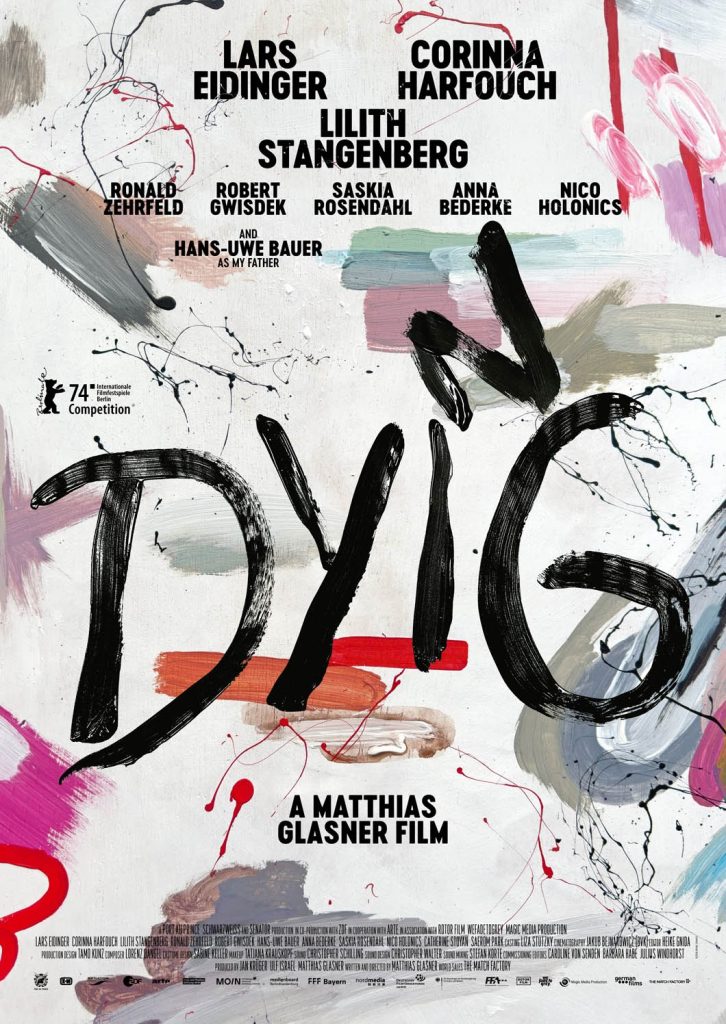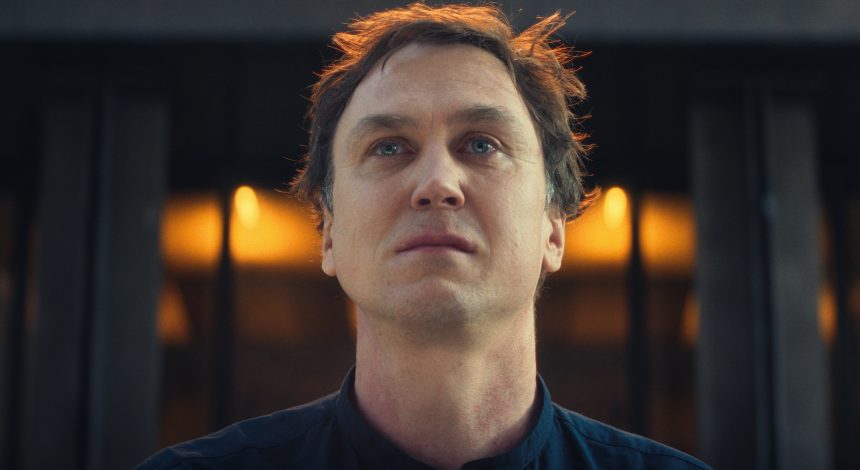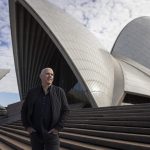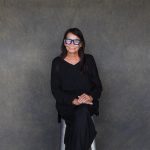In Dying, or its original title Sterben, Tom Lunies is a conductor in modern day Berlin quietly having a meltdown. He’s the protagonist, the engine of the story, but the film asks if any of us are truly the architects of our own lives, and if its possible to escape the previous generations’ mess that most of us our born into. Its a fantastic performance from Lars Eidinger, who can swing microscopically from incredibly wounded and vulnerable, to distant, to sardonic, to capable, within the space of a scene, even from one end of a sentence to another.
A piece of music called Dying, composed by Tom’s sometimes suicidal, sometimes grandiose best friend Bernard, played by Robert Gwisdeck, is the musical thread that strings the story together; whether this piece of art will make it to the stage; whether the young musicians in the orchestra have their heart in it; whether a performance can withstand being shared with family; and whether the sponsors and the press and the public will get it.
Death and Art are good bedfellows, and in this film the dynamics are only heightened by throwing in Family, Legacy, and whether its ever a good idea to have an Intergenerational Reckoning.
Tom’s parents Lissy, played by Corinna Harfouch, and Gerd, played by Hans-Uwe Bauer, are at the end of their lives. We are introduced to them at the height of their chaos, barely staying out of a nursing home between Lissy’s physical incapacities and Gerd’s mental ones. There’s no pulling together of the family though, with Tom and his hot mess alcoholic sister Ellen, played by Lilith Stangenberg, not exactly racing to help.
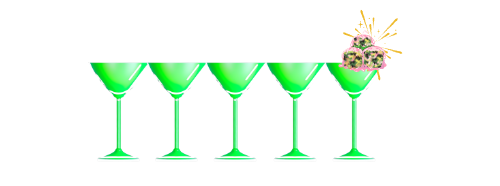
Screening in the German Film Festival 2025
Winner x 3 – 2024 Berlinale – Silver Bear Best Screenplay, Best Film, Jury Award
Winner x 4 – 2024 German Academy Lolas Awards – Best Film, Actress (Harfouch), Supp. Actor (Bauer) & Film Music
Nominated Best Actor (Eidinger) at 2024 European Film Awards
Was in competition at 2024 Sydney Film Festival and in the official selection at 2024 Melbourne International Film Festival and New Zealand Film Festival
Writer & director: Matthias Glasner
DoP: Jakub Bejnarowicz
Editing: Heike Gnida
Composer: Lorenz Dangel
Producers: Jan Krüger, Ulf Israel, Matthias Glasner
Production Companies: Port au Prince Film & Kultur Produktion GmbH, Schwarzweiss Filmproduktion GmbH, Senator Film Produktion GmbH, ZDF / arte
Starring Lars Eidinger, Corinna Harfouch, Lilith Stangenberg, Ronald Zehrfeld, Robert Gwisdek, Anna Bederke, Hans-Uwe Bauer, Saskia Rosendahl
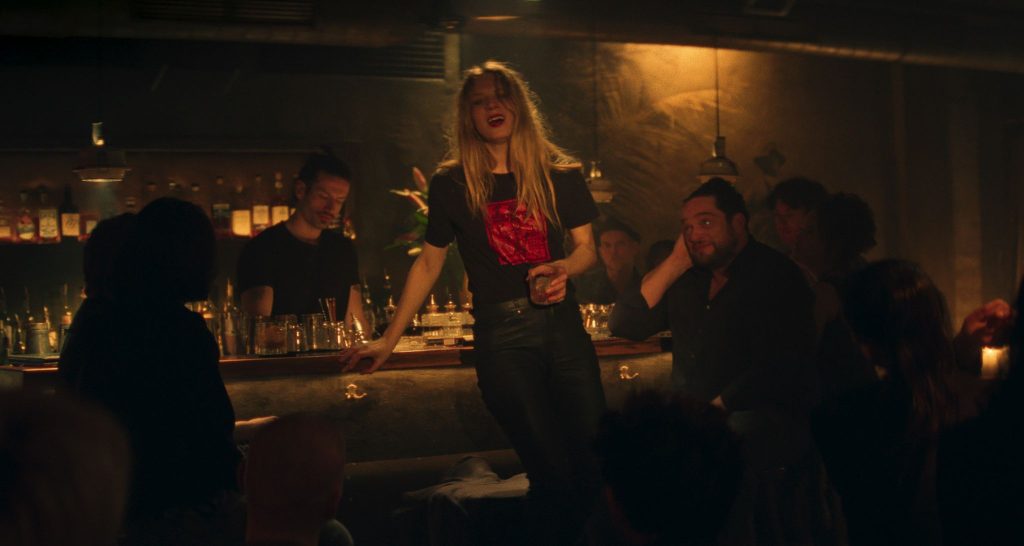
What has been passed on to both these children from their mother is musical abilities, Tom’s shining through via his conducting career, and Ellen’s via a great singing voice that only comes out when she’s drunk. More than that, what is examined in the film is what else they have carried through, cooly juxtaposing deep painful wounds, and complete indifference. The composition and original score by Lorenz Dangel is uplifting and excellent, and the pressure-cooker scenes in the orchestral rehearsals are beyond tense.
The film is split into chapters, a nifty device that is simple and been done plenty of times before, but feels fresh because we don’t see if very often. Nowadays the tendency for a longer work might be to stretch it even further and make it into a series for streaming. But even though the film is three hours long, maybe because of the chapters, and maybe because it’s impossible to look away, it never feels long.
Neither sibling has it together in the love department, and the echoes of the relationships with their primary caregivers and what legacies this new generation might be walking into rebound through the scenes. Tom is being kept on the end of a string by an ex-girlfriend with whom he has agreed to co-parent a child that isn’t his, even though his exact role and rights are called into question regularly, not only by the real father, but by the ex-girlfriend when it suits her. He is cut off from any real feelings he might have for his assistant Ronja, that he’s also having a romance with. Ellen gets together with a married dentist from work, played by the having-a-moment German actor Ronald Zehrfeld, their intense relationship revolving around getting wasted and making promises they can’t keep. Stangenberg steals every scene she is in.
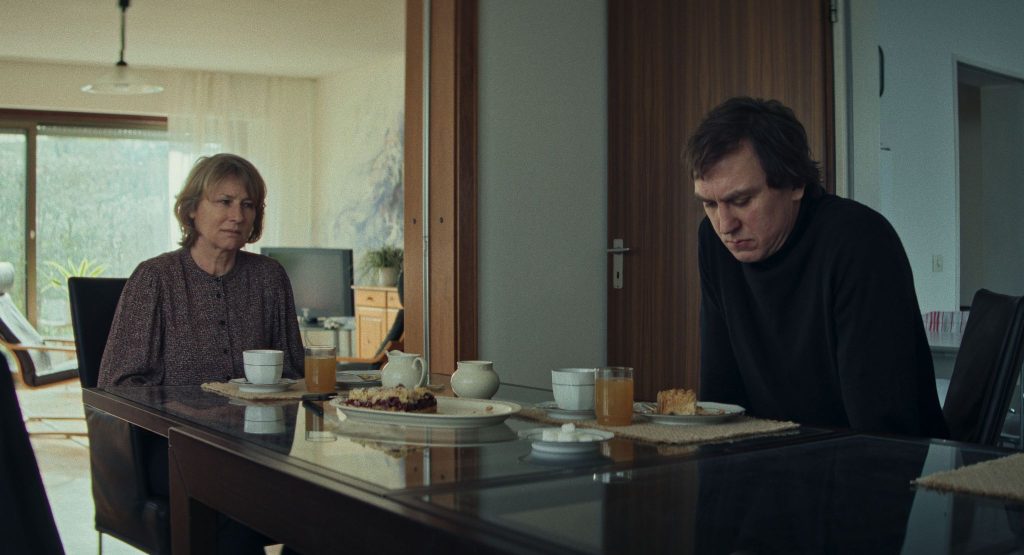
The director Matthias Glasner (Der Freie Willie, This Is Love, Gnade) has said he drew on his own life for some of the story, his own parents having recently passed away when he started writing.
He said, “I’m sitting in a coffee shop, just a few steps away from our flat. My first child, just born, is waiting for me to push her through the park so that she can finally fall asleep. I want to sleep too, but I can’t. I stare out of the window, out onto the street, Schönhauser and Danziger. And I see the ghosts of my parents, who have never been here, standing there in the middle of the traffic. They recently died in quick succession, after a long period of suffering. I want to finally get close to them, which I never managed to do during their lives. And the only way for me to get close to anything or anyone at all is to make a film.”
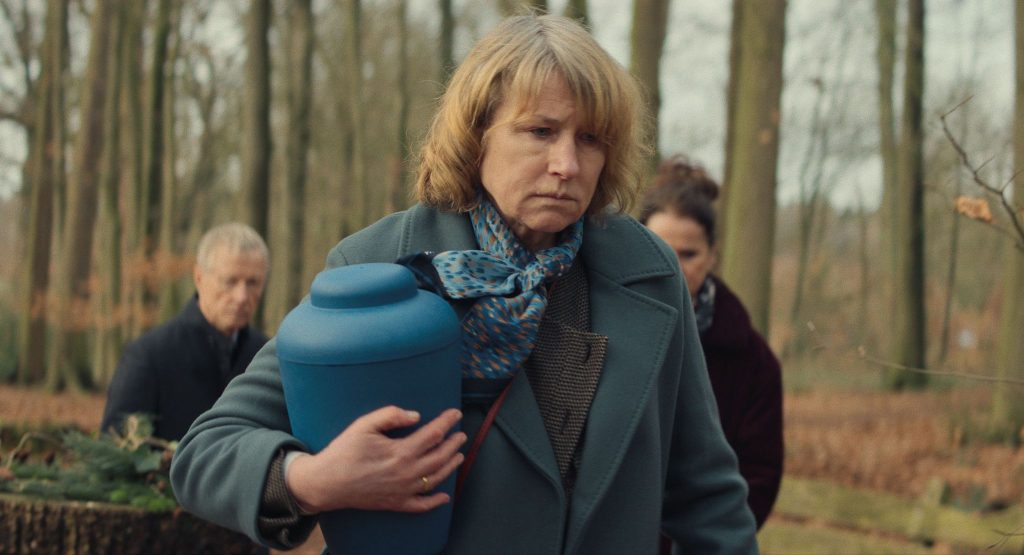
It’s also a very funny film, even in some of the most profound scenes there’s a joke for us to get, and a sense of the internal humour of the story. Funerals are perfect for that, the simultaneous tragedy and what-the-fuckery, and we get a few. Ellen’s job as a dental assistant is a classic comedy workplace, as she struggles to combine her hangovers with the need to keep whizzing instruments in the right place.
There’s an arresting scene between Tom and his mother, when the truths of their lives together and the roles of mother and son are laid bare. It’s a complete showstopper with both Eidinger and Harfouch knocking it out the park. The cast apparently started performing each day without rehearsals and maybe it is that rawness which comes across on screen. It’s a conversation that not many have in real life, and points out that legacy involves not only the dual themes in the film of children and art, but can also be knowledge of who your parents are, what actually happened, and where you’re really from. It sounds simple but in reality, a lot of such information is never truly known, and those honest and factual legacies are wasted in the grave.
There’s also a lot in film about art itself, whether its possible to ever be satisfied with your own work, and a reminder that everything is fleeting and subject to a variance of opinions, most of which will be forgotten. It’s a great meditation on Life, and Dying.
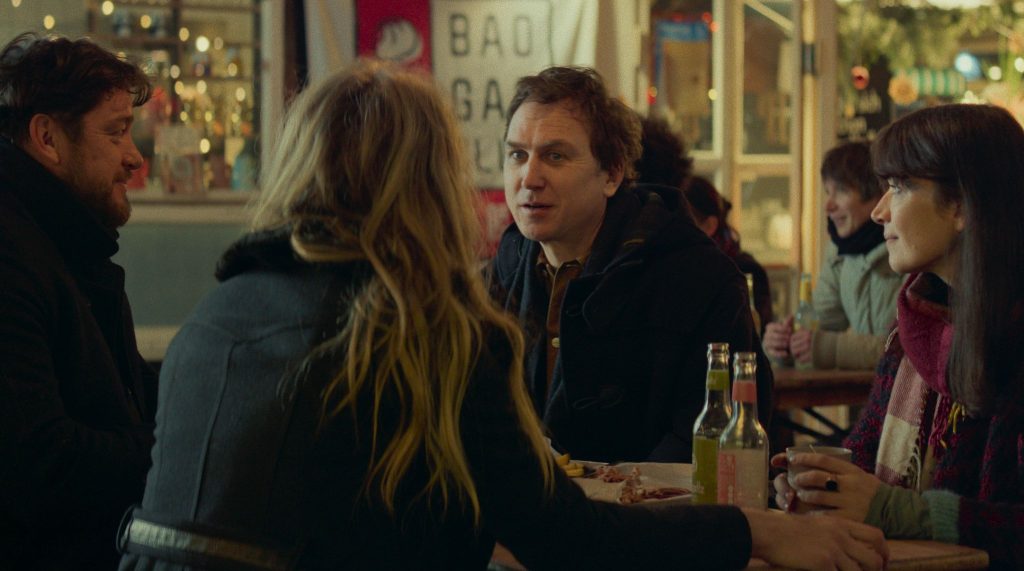
The German Film Festival will take place in Australia from 30 April – 28 May at Palace Cinemas, Palace Nova and Luna Palace Cinemas.
